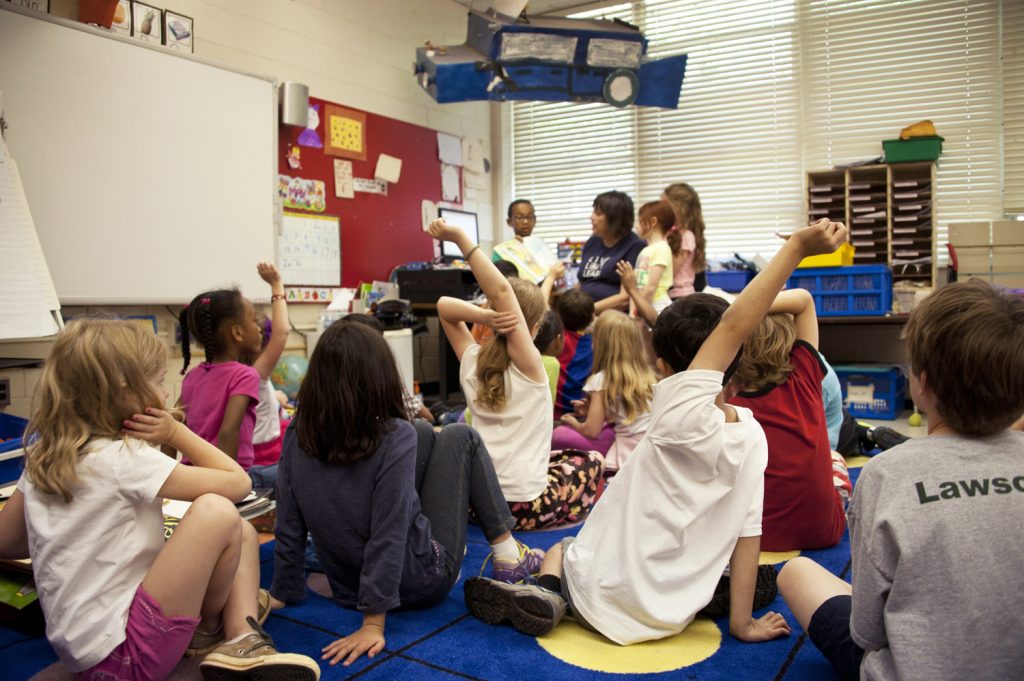(CAP) – Families across the country have been unable to find high quality early care and education options for their young children. This, as the COVID-19 pandemic has wreaked havoc on an already-strained field.
The nation’s child care industry is in crisis and America’s governors have a critical role to play. Absent major federal investments in child care, states are left to address the nation’s child care crisis. Some governors are leading the way by taking bold action in support of young children and their families. Both Democratic and Republican governors have already started the conversation by discussing these critical issues in their State of the State addresses.
The Center for American Progress recently explored what governors are saying about child care and early learning in their states. The organization found that more than two-thirds of America’s governors—22 of 36—highlighted child care and early education in their addresses, clearly indicating that both are bipartisan issues. Thirteen of these governors were Democrats, and nine were Republicans.
Democratic Michigan Gov. Gretchen Whitmer proposed expansion to support improved childcare opportunities. “Let’s expand our bipartisan preschool effort—the Great Start Readiness Program—so every four-year-old in Michigan can access a free, public preschool education by the end of my second term. This investment will ensure children arrive at kindergarten ready to learn, and [it] saves their families upwards of $10,000 a year,” said Whitmer.

Across the aisle, Republican Missouri Gov. Michael Parson announced plans to invest millions to start to expand preschool options to all low-income children in his state. Gov. Parson plans to invest $56 million to provide preschool options to all low-income children in the state of Missouri. He said this would ensure that “50 percent of all our families with pre-k students will be able to enroll their children in expanded programs through their local school district or charter school at no cost.” Gov. Parson would also invest upwards of $78 million to “increase child care subsidy rates to child care providers across the state,” he explained, which would increase compensation and stabilize supply for working families. “There is a clear need to do better when it comes to early childhood. Let’s meet this moment for Missouri kids, families, and businesses!” said Parson.
On both sides, governors are stepping up as early childhood champions. Democratic Gov. Pritzker proposed Smart Start Pre-K, a four-year plan to increase funding for preschool and provide access for all three- and four-year-olds in the state of Illinois. The plan would help create new center- and school-based classrooms, improve quality, and attract professionals to the workforce. The governor also proposed to address the child-care shortage by implementing Smart Start Workforce Compensation Contracts, which would reimburse child care providers for student enrollment rather than attendance, providing a more reliable funding stream. In addition, his proposal includes “provid[ing] three months of childcare for unemployed parents who are engaged in a job search or a job training program.”
Finally, Pritzker proposed expanding access to child care programs in child care deserts where no providers exist within a “reasonable” distance. The plan would “allocate $100 million of new capital to double the Rebuild Illinois investment already helping providers build new and expand existing facilities.” “Today, I ask you to partner with me once again—this time on the long-term investment that has the greatest return for taxpayers with the most positive social and economic impact I have ever come to you with. It’s called Smart Start Illinois, and it will make our state the best place in the nation to raise young children,” said Pritzker.
With similar concerns about child care deserts, Democratic Gov. Evers said “54% of Wisconsinites today live in a child care desert—where there are few to no high-quality options for child care in their neighborhood or community.
And even if there is a nearby child care provider, it still might not be affordable for a working family,” said Evers. To address child care shortages throughout the state, the governor proposed increasing state general fund investments in child care to replace expiring federal funding.
This includes more than $340 million for Child Care Counts to help providers pay staff fair, competitive wages and more than $22 million for the Partner Up! program to expand partnerships between child care providers and employers. Evers proposed expanding Wisconsin’s child and dependent care credit to provide almost $30 million in tax relief to more than 100,000 families.
Governors’ 2023 State of the State addresses show that early care and education is an issue that is able to gain rare bipartisan support at the state level. Public support for investments in young children is at an all-time high nationwide, and governors recognize that child care and preschool are issues that deserve attention and investment. They now have a significant opportunity to take the lead to support children and families.




